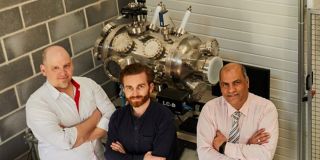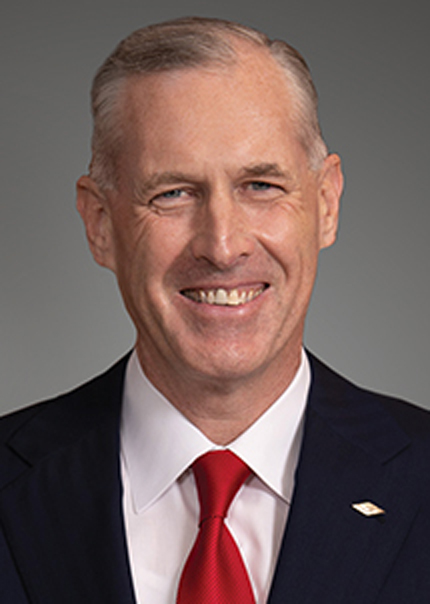The Diablo Canyon nuclear power plant, located near Avila Beach, Calif.
A recent article on a radio station website about an auxiliary feedwater (AFW) pump problem at the Diablo Canyon nuclear power plant led to information exchanges between a reporter, the American Nuclear Society, and nuclear advocates. The incident also involved a tweet by a member of the Union of Concerned Scientists.
March 30, 2022, 11:55AMANS Nuclear CafeJacopo Buongiorno, Steven Nesbit, Malcolm Grimston, Lake Barrett, Matthew L. Wald, and Andrew Whittaker The six reactors at the Zaporizhzhia nuclear power plant in southeastern Ukraine.
On March 4, Russian forces set fire to an office building at Ukraine’s Zaporizhzhia nuclear power plant, raising fears about reactors being damaged. The attack stirred up memories of the Chernobyl accident in 1986, a reaction that longtime nuclear opponents are taking advantage of to rekindle their cause. However, the reactors operating in Ukraine today are profoundly different from the design used at Chernobyl, and are, by nature, difficult to damage.
Let’s set the record straight and explain the risks of nuclear power plants in war zones.
Data from research firm PitchBook show a spike in nuclear investment. (Graph: Bloomberg)
The trend of big-tech billionaires of Silicon Valley investing in next-generation nuclear energy startup companies continues. In a March 22 article on the Bloomberg website, Lizette Chapman, of the site’s venture capital group, writes that these investors view nuclear power as “a solution to both cutting carbon emissions and weaning the world off now-controversial Russian gas.”
The Palisades plant near Covert, Mich. (Photo: Entergy)
“Many states have made carbon dioxide–reduction plans with no hope of success. But if they want to meet even a portion of those goals, they must put nuclear power back on the table.” So opined Tim Cavanaugh, senior editor at the Mackinac Center for Public Policy, in an essay published by The Hill on March 23.
Aerial view of the High Flux Isotope Reactor. (Photo: ORNL)
The nonproliferation-related monitoring of nuclear reactor operations received a boost from a new study focusing on the use of seismic and acoustic data for such purposes, ScienceDaily reported last week. The study, conducted by investigators at Oak Ridge National Laboratory, was published March 9 in the journal Seismological Research Letters.
Cover of the April 1962 issue of Nuclear News (left), ATR core diagram appearing in October 1969 issue of Nuclear News (center), and cover of the October 1969 issue of Nuclear News (right).
The Department of Energy and Idaho National Laboratory announced this week that the sixth major core overhaul of the Advanced Test Reactor (ATR) is complete, after an 11-month outage that began in April 2021. The ATR was built as a key piece of mission support for U.S. Navy programs and first reached full power in 1969. Today it remains “the world’s largest, most powerful and flexible materials test reactor,” in the words of INL—quite a feat for a reactor that was planned over 60 years ago.
The Neckarwestheim nuclear power plant in Germany.
After offering a small shred of hope that it might be persuaded to keep its remaining power reactors in operation a bit longer to reduce its dependence on Russia for energy, Germany has opted to continue with its nuclear phaseout. The last three operating German reactors, Neckarwestheim-2, Isar-2, and Emsland, are slated for shutdown later this year.
The Fukushima Daiichi site before the accident.
Today’s #ThrowbackThursday post looks back at some of Nuclear News’s reporting on the Fukushima Daiichi accident, which was initiated 11 years ago tomorrow. The news reporting includes the initial coverage of the event from the pages of Nuclear News in April 2011 and the in-depth coverage of the 2011 ANS Annual Meeting, where special sessions focused on the accident.
Spent fuel in dry storage at the decommissioned Zion site in Illinois awaits a permanent home. (Photo: EnergySolutions)
The deadline for submitting comments on the Department of Energy’s request for information on using a consent-based approach to siting federal facilities for the interim storage of spent nuclear fuel is Friday, March 4.







 The Nuclear Innovation Alliance released a report on March 25 titled “
The Nuclear Innovation Alliance released a report on March 25 titled “









 The European Union could reduce imports of Russian natural gas by more than a third within a year through a combination of measures that would support energy security and affordability and would be consistent with the European Green Deal, according to a new report from the International Energy Agency.
The European Union could reduce imports of Russian natural gas by more than a third within a year through a combination of measures that would support energy security and affordability and would be consistent with the European Green Deal, according to a new report from the International Energy Agency.

